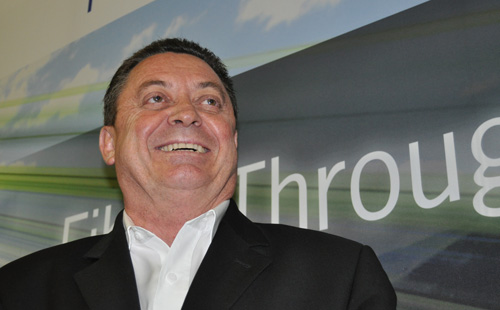
Telecommunications operators across the developed world are investing billions of dollars in fibre-to-the-home projects to deliver next-generation services such as Internet television and video-on-demand products. But the costs associated with fibre roll-outs in developing countries like SA is often seen as prohibitive.
Now, one company, Nasdaq-listed Globecomm, believes developing markets can get fibre-equivalent broadband speeds using wireless technology, in the process potentially obviating the need for regulatory interventions like local-loop unbundling, where rival operators are given access to fixed-line incumbents’ access networks into people’s homes. And the company is about to build its first network in Africa — in the West African nation of Sierra Leone — after a successful implementation of the technology in the Bahamas.
Michael Cothill, a senior consultant for telecommunications business development at Globecomm, says the problem in many emerging economies is that rivals to incumbent operators have no way of accessing the existing “last mile” cable infrastructure and so have to find alternative and affordable methods of providing high-speed services to end users.
The company believes it has found a way: using frequencies employed by Ka- and Ku-band satellites to deliver 100Mbit/s Internet access into people’s homes, but doing so terrestrially.
The company uses frequency in the 12GHz and 42GHz bands to offer terrestrial wireless broadband products. Cothill says research by the US Federal Communications Commission has demonstrated that the technology does not interfere with satellite broadcasters, provided certain guidelines are followed.
The 12GHz solution provides coverage of between 8km and 12km from a base station using line-of-sight equipment and offers standard- and high-definition video using the DVB-S technology typically used by satellite-based pay-TV operators; the 42GHz solution is better suited for shorter-range options.
The return path — the connection from the consumer back to the service provider — is created using WiMax technology, third-generation cellular networks or fixed-line digital subscriber lines.
“This technology … allows operators to … deliver the same performance as fibre,” Cothill says. “Fibre can’t get to the home cost effectively, but we can do it using wireless technology and our prices are 25% of fibre.”
He says operators can amortise the costs of a 100Mbit/s network over 24 months with average revenue per user of between US$120 and $160.
Globecomm has already had preliminary discussions with the Independent Communications of Authority about launching a test network in SA to demonstrate the technology. — Duncan McLeod, TechCentral
- Subscribe to our free daily newsletter
- Follow us on Twitter or on Google+ or on Facebook
- Visit our sister website, SportsCentral (still in beta)

